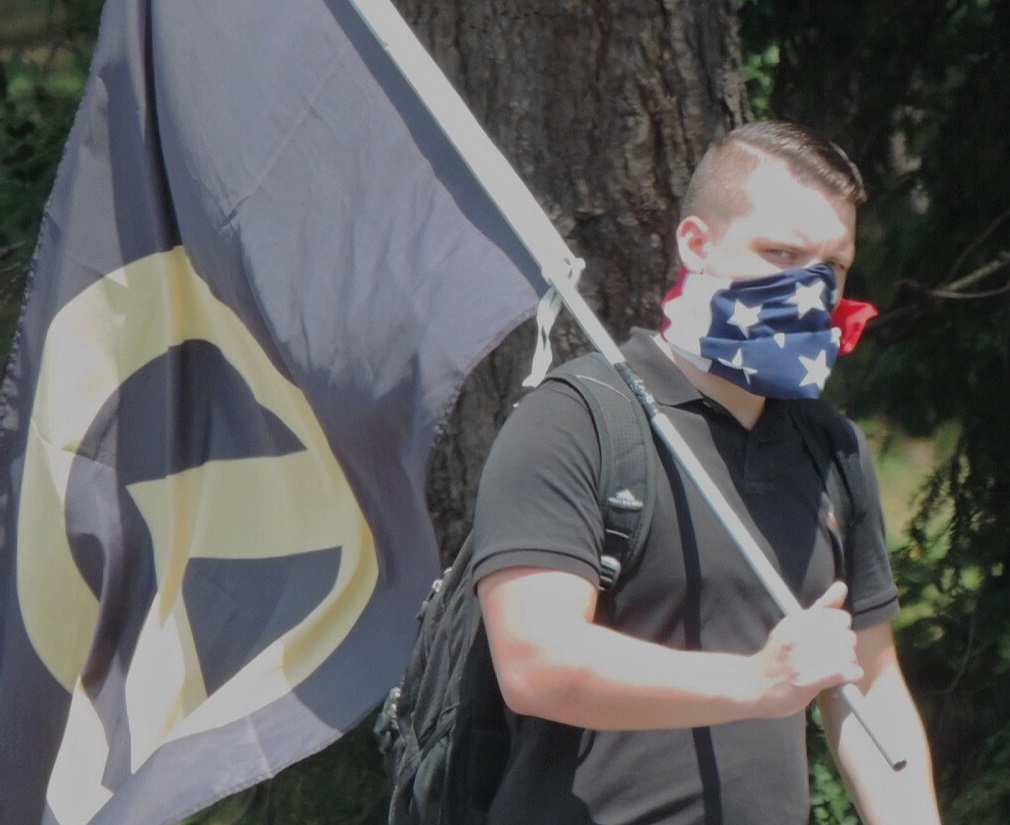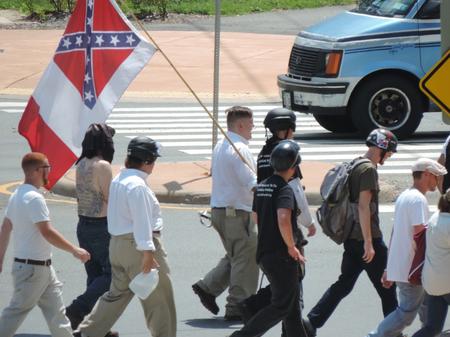Is Racial Hatred More or Less Empowered One Year After Charlottesville?
“This has been such a stressful and hectic year in responding to racial conflict and instances of racism,” says race and inequality expert Heather McGhee.


This week marks one year since white nationalists, white supremacists, and Nazis marched in the streets of Charlottesville, Virginia.
The Unite the Right march gave way to violence, resulting in the death of Heather Heyer after a self-identified white supremacist rammed his car into a crowd of counter-protesters.
This week, those far-right hate groups hoped to hold another rally in Washington D.C. That march attracted just a couple dozen people.
Does that say anything about the state of openly-bigoted people in the United States? Can we say they’re less emboldened today than they were just a year ago? Or is that a dangerous assumption?
Heather McGhee is distinguished senior fellow with Demos, a New York-based public policy think tank, and an expert on race and inequality. She joins Detroit Today with Stephen Henderson to give her thoughts on what we’ve learned — and what we haven’t learned — in the past year.
“This has been such a stressful and hectic year in responding to racial conflict and instances of racism,” says McGhee. “I think a lot of people would like to think of the torchbearing Nazis in Charlottesville as something that’s of a different kind entirely than the other kind of racist acts that we see every day across the country. But I don’t think we have the luxury of thinking that way.”
Click on the audio player above to hear the full conversation.
